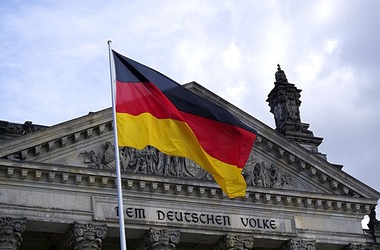
The translation of the Germany paper using Google provides us the following details:
“German law should generally be opened up for electronic securities, i.e. the currently mandatory documentary embodiment of securities (paper form) should no longer apply without restriction.”
Regulation should establish a system for monitoring these digital tools, along with the ministry’s versatility to adapt the guidelines to the constantly evolving blockchain tech.
“In view of the fact that the technical standards and requirements can change rapidly, authorization should be provided to regulate the specific technical details by legal regulation.”
The effort should begin with digital bonds and eventually shift to electronic shares, the government said, as the level of regulation needed for the latter would postpone the creation and launch of any digital securities in the nick of time. Securities with similar structure should be recorded in a single unified registry overseen by a government-monitored organization “to avoid manipulative possibilities,” the paper said.
The paper further states that “separate regulations should be provided for the acquisition and transfer of electronic securities as well as good faith protection.”
If electronic securities are made use of to trade in the trading locations of the country, they should be licensed by the central security depository (CSD) of the country, the ministry said. In general, individual investors should just be able to purchase tokenized securities via a financial intermediary, the paper said.
The document said that digital securities can use blockchain, but not necessarily:
“The use of blockchain technology should not be privileged, especially with regard to the state-of-the-art development of the sometimes high energy requirements of public blockchain technologies and their climatic effects.”
The paper also addresses the issue of so – called utility tokens, considering that they may be excluded from securities issuers’ requirements.
The document says “As a rule, utility tokens do not constitute securities, investments or other financial instruments under the German Securities Trading Act and in most cases will not be electronic bonds in the future, although “it could be determined by law that a public offer of utility tokens may only take place if the provider has previously published an information sheet.”
The suggestions of the ministry come as a proposed bill on offerings for security tokens (STOs) is in the German parliament. According to Senator Thomas Heilmann, Germany’s ruling political party and a member of the Christian Democratic Union (CDU), “The technology sounds very interesting, but people don’t really understand it.”
He further stated that the CDU group in the parliament backs his plan.
The bill now resides in the sort of “discussion materials” and and was debated behind locked doors by German lawmakers and government agencies, said Richard Lohwasser, chief executive officer of blockchain company Lition, who advised Heilmann on the fresh and new regulatory suggestion.
In its present condition, trying to deal to with them without thorough oversight of security tokens in Europe can lead to a variety of issues: owning a token does not imply holding equity from a legal perspective, dividend payments are not lawfully confirming, and if a token is offered the buyer does not obtain legal rights to collect dividends, explained Lohwasser.
Germany can also obtain a management role in tokenized finance as a financial hub of Europe, the document of the Finance Ministry indicates. The country could also set the stage for future safety token laws across the EU. The ramifications may be crucial for the international blockchain fraternity, not just Germany, as per to Lewis Cohen, an attorney at New York-based legal firm DLx Law.
He concluded saying
“Even if the German capital markets are not that significant right now, especially from the point of view of companies here in the US the fact that policymakers in Germany are taking active steps to encourage the use of security tokens will be noticed, and lessons will be learned, around the world. The German experiment, if you will, is important for creating a model, in which the wider blockchain community can learn what works well and what doesn’t work as well.”